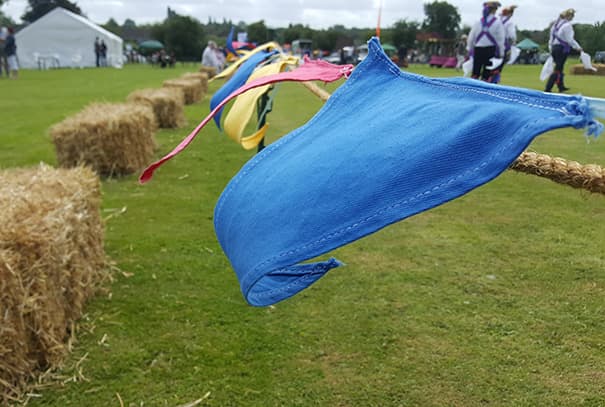
We should be advised of any event with more than 1,000 attendees at any one time and the following is a guide to the information we would require:
- A full list of activities and who is responsible for them. All Third Parties must have their own Public Liability insurance evidenced to the Council, for example: catering vans, fair rides, pony rides, bouncy castles and other inflatable bouncy devices, bands, and stalls that aren’t organised by the Council. All Permits and Licenses must be in place, especially if you are seeking road closures and, if required, the Police and Fire Brigade should be notified.
- A Risk Assessment should be carried out and documented prior to the event. The location should be suitable for the event.
- There should be sufficient Marshalls for the number of people attending. Please note the risk assessment of the event will determine the marshalling.
- A qualified first aider should be in attendance and they must have means to call the Emergency Services.
- Start and finish time of the event: If the event is for more than one day; how many days, start and finish times, security overnight.
- Will there be any music? If yes, what type i.e. local band, type of music. If the band is semi-professional/ professional they will need their own Public Liability insurance in place.
- Will there be any electrics? If yes, how will it be generated i.e. if it is a generator, what is the security on the generator; if it is a plug into mains, will there be circuit breakers in place, will the cables be covered with matting and is there a contingency plan for wet weather.
- If the beacon is a basket type attached to a building or a pole a risk assessment should be undertaken to ensure the public is kept at a safe distance and there is no danger of the flames or hot particles affecting nearby properties or vehicles. If the beacon will be a bonfire type, cover is subject to the Council providing their insurers with a copy of their risk assessment to approve at least 14 days prior to the event. The bonfire site should be at least 75 metres away from property or vehicles which are not owned, hired or rented by the Council. If this is an issue, you will need to seek your insurer’s approval before cover can be confirmed.
- If you need loss and damage cover for hired in equipment such as generators, toilets, or lighting we will need to know the sum insured required, the duration of the hire, security arrangements and storage details.
- Upon referral to Gallagher, stalls run for no financial gain by local people or groups who do not have their own Public Liability insurance in place may be covered under the policy. The Council must take responsibility for the risk assessment and Health & Safety of the stall. The Council should be aware that if a claim occurs then it would be defended under the Council’s policy and this may affect the terms and conditions at the next renewal.
- If the Council is responsible for a BBQ, then it must be sited in a position where people cannot walk into it, fire-fighting equipment must be in place (sand/water) and the food must be kept chilled until it is cooked.
- If the Council is organising a Tug-of-War they must ensure that all competitors are wearing suitable clothing and footwear and use the correct type of rope.
These are brief product descriptions only. Please refer to the policy documentation paying particular attention to the terms and conditions, exclusions, warranties, subjectivities, excesses and any endorsements.


